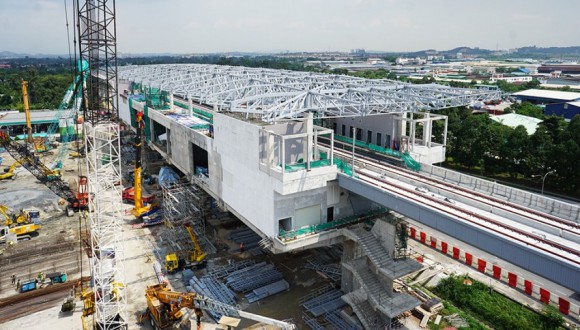MoF likely to cease PDP model for future infrastructure projects
The award of big infrastructure developments to project delivery partners (PDPs) by the government is likely to come to an end after incidences of cost overruns affected its budget, said Tony Pua. The government is also stopping the award of directly negotiated private partnership projects (PPPs) to companies, said Pua, who is a special officer to the finance minister. “[In PDP] contracts, they get 6% of the cost of the project. The incentive is for the project manager to inflate the cost of the project,” he said. Pua was citing the example of the RM21 billion Klang Valley mass rapid transit (MRT) Line 1 consortium, whereby the cost did not include RM7 billion associated costs for engineering consultancy, system integration works, site investigations and PDP fees. He also noted that the previous government’s practice of government guarantee projects that inflated contingent liabilities was a corruption of the concept of PPP. (The Edge Markets)
‘Truly Malaysia-owned”: Local firms can take up ECRL project
Malaysia has what it takes to fully support the East Coast Rail Link (ECRL) development, making it a “truly Malaysia-owned” project while keeping costs low, say industry players. The move would possibly see companies coming from different sectors working hand in hand on the project once they decided that it was viable. The track record of Malaysian companies, especially in developing mega infrastructure projects locally and overseas, showed that they were skilled and capable of delivering. However, the financing element of the project could pose a major challenge. Yesterday, Prime Minister Tun Dr Mahathir Mohamad said other parties – including local and Chinese companies – had offered to build the rail link for as low as RM10 billion. “But we have to study whether, in fact, you can reduce the cost by that much,” he added. (NST Online)
Sime Darby Property aims for RM1bil sales
Sime Darby Property Bhd is targeting sales of RM1bil in 2018, with a focus on landed property as opposed to high-rise units that are in oversupply currently. Group managing director Amrin Awaluddin said demand was still firm for affordable-priced quality products, especially landed property in good locations. “We are also well-positioned for growth in the industrial property market, given the rising demand for logistics facilities driven by new technology and e-commerce growth,” he said. The group aims to launch about 1,500 units of property with a combined gross development value of approximately RM1.1bil in the six months to Dec 31, 2018. The units to be launched will be primarily within the RM400,000 to RM850,000 price range. (The Star Online)
SIA necessary before project approval to avoid community conflict
Property developers must conduct a social impact assessment (SIA) study before applying to the authorities to undertake any development project, Housing and Local Government Minister Zuraida Kamaruddin said. This will ensure that developers are able to obtain feedback from the communities surrounding a project and to make the process of obtaining the required clearance from all relevant authorities easier. The SIA would be an important source of reference should any issues occur following the project’s approval. (Malay Mail Online)
Country Garden: Forest City has complied with all laws and regulations
Country Garden Pacificview Sdn Bhd has came out to defend its development of US$100 billion Forest City in Johor, after Prime Minister Tun Dr Mahathir Mohamad announced today that overseas buyers will no longer be allowed to purchase homes there. In a statement, Country Garden Pacificview said like all property development projects in Malaysia, Forest City has complied with all laws and regulations, and has the necessary approvals to sell to foreign buyers. “We do not issue any permanent residency (PR) to foreign buyers of Forest City,” it added. Meanwhile, the Malaysian government has clarified that Malaysia imposes certain conditions, irrespective of nationality, on the purchase of properties by foreigners, and that information regarding these conditions are publicly available. (The Edge Markets)





